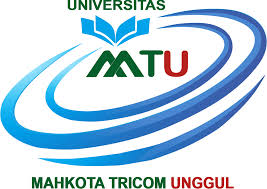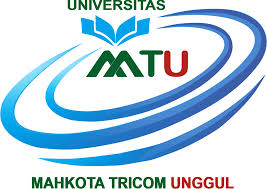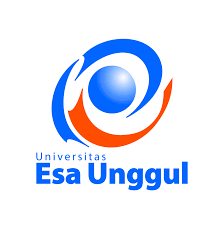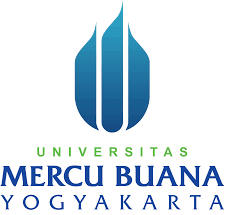Human Resource Business Partners: Recruitment, Coaching, and Leadership Development
DOI:
https://doi.org/10.55927/ijis.v2i4.3680Keywords:
Human Resource Business Partners, Recruitment, Learning Development, CoachingAbstract
The purpose of this paper is to provide an overview of each variable that exists by providing answers from researchers in this paper, This research uses qualitative techniques in a way that is relevant to the literature. Literary studies are types or methods of academic writing in the form of literature research. Theoretical analysis and analysis of relationships between variables in Mendeley, Google Scholar, and other sourcebooks and online media journals, research results The variables in this study are still rarely united in one study from various studies only coaching, and leadership development exist. Recommendations in the future are still very rare for researchers to mention between the variables that researchers try to express in this paper, so that in the future this research can be carried out with different methods and different objects to give color to the field of human resources, especially those in the research of this paper
Downloads
References
Albert, E. T. (2019). AI in talent acquisition: a review of AI-applications used in recruitment and selection. Strategic HR Review, 18(5), 215–221. https://doi.org/10.1108/shr-04-2019-0024
Cascio, W. (2015). Managing human resources. McGraw-Hill Higher Education.
Cooke, F. L. (2018). Concepts, contexts, and mindsets: Putting human resource management research in perspectives. Human Resource Management Journal, 28(1), 1–13. https://doi.org/10.1111/1748-8583.12163
Dessler, G. (2011). Manajemen sumber daya manusia. Penerbit Indeks. Jakarta.
Drake, D. (2009). Coaching and the freedom to learn: A conversation with Tim Gallwey and John Whitmore. The International Journal of Coaching in Organizations, 7(1), 38–53.
Ely, K., Boyce, L. A., Nelson, J. K., Zaccaro, S. J., Hernez-Broome, G., & Whyman, W. (2010). Evaluating leadership coaching: A review and integrated framework. The Leadership Quarterly, 21(4), 585–599.
Fillery-travis, A., Lane, D., Linley, P. A., & Harrington, S. (2006). International Coaching Psychology Review September 2015. International Coaching Psychology Review, 1(23), 23–36.
Gilani, H., & Jamshed, S. (2016). An exploratory study on the impact of recruitment process outsourcing on employer branding of an organisation. Strategic Outsourcing, 9(3), 303–323. https://doi.org/10.1108/SO-08-2015-0020
Goleman, D., Herzberg, F., Manzoni, J.-F., Barsoux, J.-L., Katzenbach, J. R., Smith, D. K., Gabarro, J. J., & Kotter, J. P. (2000). 2 Leadership That Gets Results 18 One More Time: How Do You Motivate Employees? The Set-Up-to-Fail Syndrome 48 The Discipline of Teams 60 Managing Your Boss 71 Manager’s Toolkit: The 13 Skills Managers Need to Succeed HBR’s Must-Reads on Managing People. www.hbr.org
Hastings, L. J., & Kane, C. (2018). Distinguishing Mentoring, Coaching, and Advising for Leadership Development. New Directions for Student Leadership, 2018(158), 9–22. https://doi.org/10.1002/yd.20284
Hecklau, F., Galeitzke, M., Flachs, S., & Kohl, H. (2016). Holistic approach for human resource management in Industry 4.0. Procedia Cirp, 54, 1–6.
Khan, M. T., Khan, N. A., & Mahmood, K. (2012). An Organizational Concept of Human Resource Development – How Human Resource Management Scholars View ‘ HRD .’ Universal Journal of Management and Social Sciences, 2(5), 36–47.
Lawong, D., Ferris, G. R., Hochwarter, W., & Maher, L. (2019). Recruiter political skill and organization reputation effects on job applicant attraction in the recruitment process: A multi-study investigation. Career Development International, 24(4), 278–296. https://doi.org/10.1108/CDI-01-2019-0007
Lawrence, E., Dunn, M. W., & Weisfeld-Spolter, S. (2018). Developing leadership potential in graduate students with assessment, self-awareness, reflection and coaching. Journal of Management Development, 37(8), 634–651. https://doi.org/10.1108/JMD-11-2017-0390
Le Comte, L., & McClelland, B. (2017). An evaluation of a leadership development coaching and mentoring programme. Leadership in Health Services, 30(3), 309–329. https://doi.org/10.1108/LHS-07-2016-0030
Maheshwari, S. K., & Yadav, J. (2019). The role of HR in leadership development. Development and Learning in Organizations, 33(5), 20–23. https://doi.org/10.1108/DLO-11-2018-0141
Marquardt, M. J. (1996). Building the learning organization: A systems approach to quantum improvement and global success. McGraw-Hill Companies.
Maxwell, J. C. (2008). Etika. BPK Gunung Mulia.
Megheirkouni, M., & Mejheirkouni, A. (2020). Leadership development trends and challenges in the twenty-first century: rethinking the priorities. Journal of Management Development, 39(1), 97–124. https://doi.org/10.1108/JMD-04-2019-0114
Nolan-Arañez, S. I., & Ludvik, M. B. (2018). Positing a framework for cultivating spirituality through public university leadership development. Journal of Research in Innovative Teaching & Learning, 11(1), 94–109. https://doi.org/10.1108/jrit-08-2017-0018
O’Donohue, W., & Nelson, L. (2014). Alienation: An old concept with contemporary relevance for human resource management. International Journal of Organizational Analysis, 22(3), 301–316. https://doi.org/10.1108/IJOA-01-2012-0541
Schraeder, M., & Jordan, M. (2011). Managing performance: A practical perspective on managing employee performance. The Journal for Quality and Participation, 34(2), 4.
Sharma, A., & Sharma, T. (2017). HR analytics and performance appraisal system: A conceptual framework for employee performance improvement. Management Research Review, 40(6), 684–697. https://doi.org/10.1108/MRR-04-2016-0084
Sivathanu, B., & Pillai, R. (2018). Smart HR 4.0 – how industry 4.0 is disrupting HR. Human Resource Management International Digest, 26(4), 7–11. https://doi.org/10.1108/HRMID-04-2018-0059
Sondang, P. S. (2008). Manajemen sumber daya manusia. Jakarta: Bumi Aksara.
Ulrich, D., & Dulebohn, J. H. (2015). Are we there yet? What’s next for HR? Human Resource Management Review, 25(2), 188–204. https://doi.org/10.1016/j.hrmr.2015.01.004
Voegtlin, C., & Greenwood, M. (2016). Corporate social responsibility and human resource management: A systematic review and conceptual analysis. Human Resource Management Review, 26(3), 181–197. https://doi.org/10.1016/j.hrmr.2015.12.003
Wenny Desty Febrian, Rini Ardista, M Surno Kutoyo, Yana Suryana, Wetri Febrina, Kusnadi Kusnadi, Ryan Firdiansyah Suryawan, Tambaten Yuliana Br Purba, Sri Sudiarti, Bambang Libriantono, Erni Pratiwi Perwitasari, Irwanto Irwanto, 2022/9/20, Eureka Media Aksara
Whitmore, J., & Tiburzio, M. (2006). Coaching. Sperling & Kupfer.
Witherspoon, R. (2014). Double-Loop Coaching for Leadership Development. Journal of Applied Behavioral Science, 50(3), 261–283. https://doi.org/10.1177/0021886313510032
Wong, G. K. W. (2017). Leadership and leadership development in academic libraries: a review. Library Management, 38(2–3), 153–166. https://doi.org/10.1108/LM-09-2016-0075
Yarborough, J. P. (2018). The Role of Coaching in Leadership Development. New Directions for Student Leadership, 2018(158), 49–61. https://doi.org/10.1002/yd.20287
Downloads
Published
How to Cite
Issue
Section
License
Copyright (c) 2023 Primadi Candra Susanto, Ni Nyoman Sawitri, Sugeng Suroso, Zahara Tussoleha Rony

This work is licensed under a Creative Commons Attribution 4.0 International License.






















